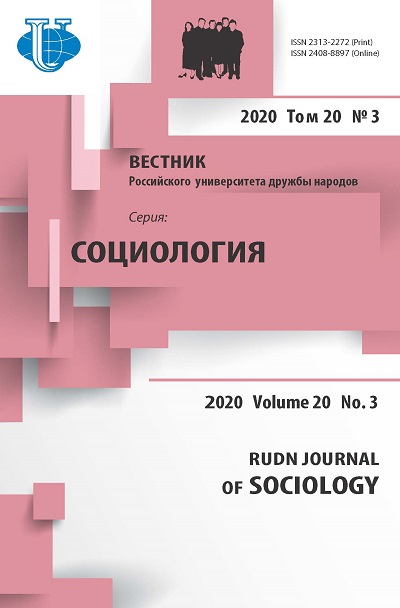Expanding the boundaries of the social-humanitarian knowledge of the world
- Authors: Torkunov A.V1
-
Affiliations:
- Moscow State Institute of International Relations
- Issue: Vol 20, No 3 (2020)
- Pages: 694-703
- Section: Reviews
- URL: https://journals.rudn.ru/sociology/article/view/24546
- DOI: https://doi.org/10.22363/2313-2272-2020-20-3-694-703
Cite item
Full Text
Abstract
The article is a review of the book by T.A. Alekseeva Theory of International Relations as Political Philosophy and Science (Moscow: Aspect Press; 2019). The last decades have been marked by large-scale transformations: the spatial-temporal characteristics of political processes change - political time accelerates, political space shrinks, sequence of the political development stages changes; boundaries between internal and external, center and periphery, material and immaterial blur. Despite the fact that these changes affect both domestic and international policies, the complexity of global political shifts significantly exceeds all internal conflicts. However, understanding of large-scale transformations lags behind the need for their meaningful interpretation. The need to understand the essence of large-scale processes is an inevitable and serious challenge for the management system. Thus, we need a theory of international research that would become a basis for both understanding the essence of changes and predicting the future development. Based on the achievements of foreign and Russian theory of international relations, T.A. Alekseeva presents a detailed conceptualization of this science. In the book, all its essential components are described in detail and combined into a logically consistent system, which brings the theory of international relations to a new level of the theoretical-methodological conceptualization. The author’s comprehensive analysis allows to use its results for solving practical problems, in particular, for resolving international crisis situations, implementing large-scale projects of scientific diplomacy, and training a new generation of experts.
About the authors
A. V Torkunov
Moscow State Institute of International Relations
Author for correspondence.
Email: rectorat@inno.mgimo.ru
доктор политических наук, академик Российской академии наук, ректор
prosp. Vernadskogo, 76, Moscow, 119454, RussiaReferences
- Бауман З. Глобализация. Последствия для общества и человека. М., 2004.
- Белые пятна - черные пятна: Сложные вопросы в российско-польских отношениях / Под общ. ред. А.В. Торкунова, А.Д. Ротфельда. М., 2010.
- Киссинджер Г. Дипломатия. М., 1997.
- Манхейм К. Человек и общество в эпоху преобразования // Диагноз нашего времени. М., 1994.
- Российско-японские отношения в формате параллельной истории / Под общ. ред. А.В. Торкунова, М. Иокибэ. М., 2015.
- Уолт С. Международные отношения: мир один, теорий много // Современная наука о международных отношениях за рубежом. Т. 1 / Под ред. И.С. Иванова. М., 2015.
- Lake D.A. Why “isms” are evil: Theory, epistemology, and academic sects as impediments to understand and progress // International Studies Quarterly. 2011. Vol. 55. No. 2.














